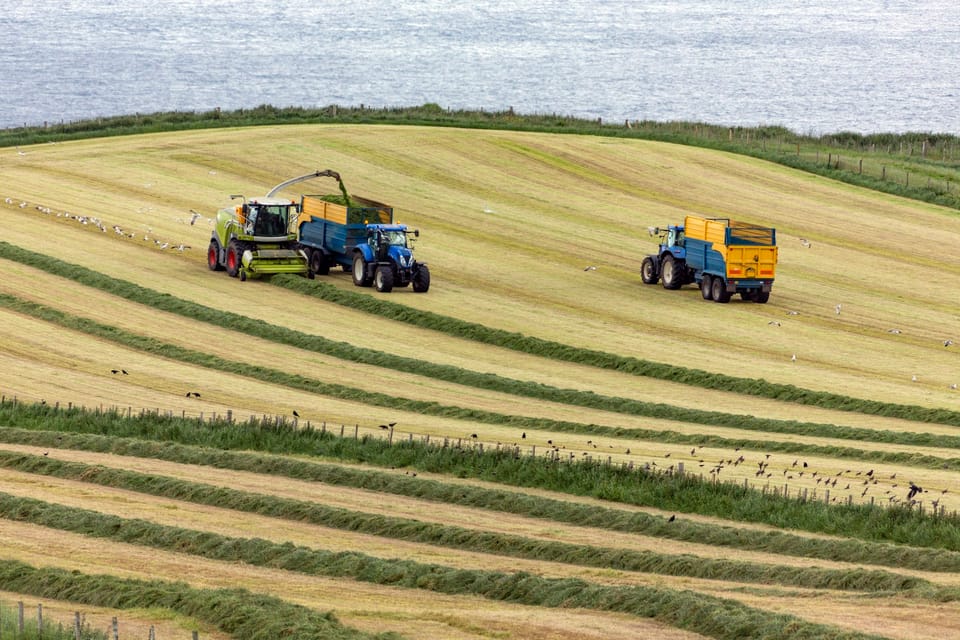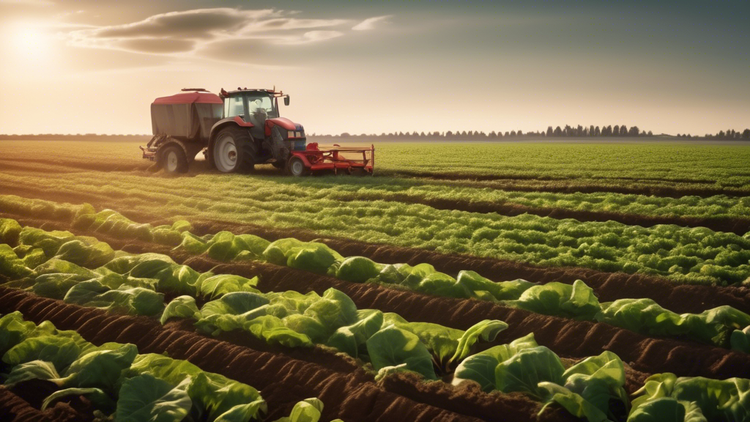Farming sector defies Northern Ireland's greenhouse gas emission patterns

In a surprising turn of events, Northern Ireland's farming sector has been defying the country's overall greenhouse gas emission patterns. While most sectors have seen a steady increase in emissions over the past few years, the agricultural industry has managed to buck this trend and reduce its carbon footprint.
Sustainable Farming Practices
One of the key reasons behind this positive development is the adoption of sustainable farming practices by many Northern Irish farmers. These practices include:
- Precision farming techniques that optimize the use of fertilizers and pesticides
- Crop rotation and cover cropping to improve soil health and reduce erosion
- Incorporating more perennial crops and grasslands into the landscape
- Implementing efficient waste management systems
By embracing these eco-friendly methods, farmers have been able to reduce their reliance on fossil fuels and minimize their impact on the environment.
Government Support and Initiatives
The Northern Irish government has also played a crucial role in supporting the farming sector's efforts to reduce greenhouse gas emissions. Through various initiatives and funding programs, the government has encouraged farmers to adopt sustainable practices and invest in green technologies.
For example, the Environmental Farming Scheme (EFS) provides financial incentives to farmers who implement environmentally beneficial measures on their land. This includes actions such as creating buffer strips along waterways, planting native tree species, and maintaining hedgerows.
Research and Innovation
In addition to government support, the farming sector has benefited from ongoing research and innovation in the field of sustainable agriculture. Scientists and researchers have been working closely with farmers to develop new techniques and technologies that can help reduce emissions while maintaining productivity.
One notable example is the use of anaerobic digestion systems, which convert animal waste and other organic materials into biogas. This renewable energy source can be used to power farm equipment and reduce reliance on fossil fuels. Furthermore, the byproduct of anaerobic digestion, known as digestate, can be used as a nutrient-rich fertilizer, reducing the need for synthetic alternatives.
Something to Consider
While the farming sector's progress in reducing greenhouse gas emissions is commendable, it is essential to recognize that there is still much work to be done. The agricultural industry remains a significant contributor to Northern Ireland's overall emissions, and continued efforts will be necessary to further mitigate its impact on the environment. Some key points to consider include:
- Encouraging more farmers to adopt sustainable practices through education and outreach programs
- Investing in research and development to find new and innovative solutions for reducing emissions
- Promoting the consumption of locally sourced, sustainably produced food to support eco-friendly farmers
- Collaborating with other sectors to develop a comprehensive, cross-industry approach to tackling climate change
Looking for updates? Sign up to our newsletter for weekly snippets.
#NorthernIreland





